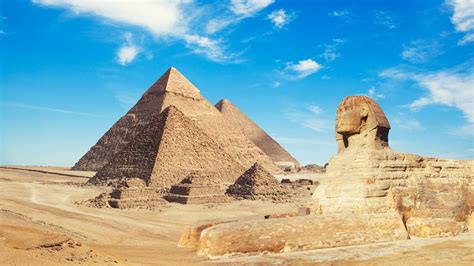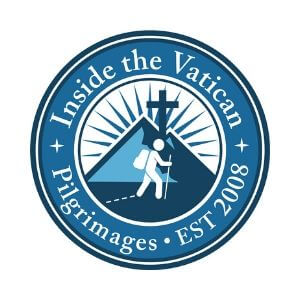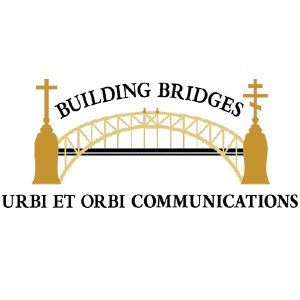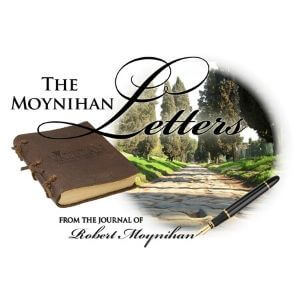
The great pyramids of Egypt, and the Sphinx. The Persian wise man, Artaban, hero of the book The Other Wise Man, written in 1895 by Henry van Dyke, tells how Artaban, who had planned to set out with the other three wise men — Caspar, Melchior and Balthasar (link and link) — to find the Christ Child, was delayed along the way. He comes to Jerusalem after Joseph, Mary and Jesus had fled to Egypt, and sets out after the slaughter of the innocents to find them in Egypt…
“After Jesus was born in Bethlehem in Judea, during the time of King Herod, Magi from the east came to Jerusalem…” —Gospel of Matthew (Matthew 2:1)
“Who seeks for heaven alone to save his soul,
May keep the path, but will not reach the goal;
While he who walks in love may wander far,
Yet God will bring him where the blessed are.”
—Henry van Dyke, the opening verses in his book “The Other Wise Man” (published in 1895, 127 years ago now)
Letter #5, 2022, Tuesday, January 4: Artaban, Part #8
As the new year begins, I am continuing to publish daily readings in 10 parts of a little-known fictional story about… a fourth “wise man”(!) from the East named Artaban — for reasons I gave in my Letter #197, sent out at the end of last year…
Artaban, like the other wise men, his friends, planned in about 2 B.C. to set out from Persia to seek and honor the Child Jesus.
But Artaban is delayed on his way, and does not arrive in Bethlehem in time to see the new-born Jesus.
Here below is the text of Part #8 of this story, so you may listen to the reading and read along with the text…
“The Other Wise Man”
We have now posted the 8th in a 10-part series of a reading of the classic Christmas story “The Other Wise Man.” It is available here on YouTube (or by clicking the video below) or on Rumble.
The story was written by Henry Van Dyke in 1895 (link). We offer this to you as a kind of Christmas present during the 12 days of Christmas. We hope that it might be a type of pilot for the creation of a kind of “book club” in which we would prepare readings of great stories and documents to try to help families, especially during this time of lockdown, to have time for reading together with children and grandchildren, during the holidays, and throughout the year. If you have a comment or suggestion, please feel free to respond to this email, or send an email to [email protected]
Here is the text of Part #8 of the story of “The Other Wise Man,” by Henry van Dyke:
Part #8: The Other Wise Man
By Henry van Dyke
In the Hidden Way of Sorrow
THEN again there was a silence in the Hall of Dreams, deeper and more mysterious than the first interval, and I understood that the years of Artaban were flowing very swiftly under the stillness of that clinging fog, and I caught only a glimpse, here and there, of the river of his life shining through the shadows that concealed its course.
I saw him moving among the throngs of men in populous Egypt, seeking everywhere for traces of the household that had come down from Bethlehem, and finding them under the spreading sycamore-trees of Heliopolis, and beneath the walls of the Roman fortress of New Babylon beside the Nile—traces so faint and dim that they vanished before him continually, as footprints on the hard river-sand glisten for a moment with moisture and then disappear.
I saw him again at the foot of the pyramids, which lifted their sharp points into the intense saffron glow of the sunset sky, changeless monuments of the perishable glory and the imperishable hope of man.
He looked up into the vast countenance of the crouching Sphinx and vainly tried to read the meaning of the calm eyes and smiling mouth.
Was it, indeed, the mockery of all effort and all aspiration, as Tigranes had said—the cruel jest of a riddle that has no answer, a search that never can succeed?
Or was there a touch of pity and encouragement in that inscrutable smile—a promise that even the defeated should attain a victory, and the disappointed should discover a prize, and the ignorant should be made wise, and the blind should see, and the wandering should come into the haven at last?
I saw him again in an obscure house of Alexandria, taking counsel with a Hebrew rabbi.
The venerable man, bending over the rolls of parchment on which the prophecies of Israel were written, read aloud the pathetic words which foretold the sufferings of the promised Messiah—the despised and rejected of men, the man of sorrows and the acquaintance of grief.
“And remember, my son,” said he, fixing his deep-set eyes upon the face of Artaban, “the King whom you are seeking is not to be found in a palace, nor among the rich and powerful. If the light of the world and the glory of Israel had been appointed to come with the greatness of earthly splendor, it must have appeared long ago. For no son of Abraham will ever again rival the power which Joseph had in the palaces of Egypt, or the magnificence of Solomon throned between the lions in Jerusalem. But the light for which the world is waiting is a new light, the glory that shall rise out of patient and triumphant suffering. And the kingdom which is to be established forever is a new kingdom, the royalty of perfect and unconquerable love.
“I do not know how this shall come to pass, nor how the turbulent kings and peoples of earth shall be brought to acknowledge the Messiah and pay homage to Him. But this I know. Those who seek Him will do well to look among the poor and the lowly, the sorrowful and the oppressed.”
(To be continued)
Our Work: An Overview
We ask you to support Urbi et Orbi Communications with a small or large contribution, at this difficult time, in order…
(1) to keep Inside the Vatican Magazine (which we have published since its founding in 1993, more than 28 years ago) independent and comprehensive… Now available to you digitally as well as in print! Now offering Virtual Events, ITV Writer’s Chat and Reader’s Chat!
(2) to ensure that Inside the Vatican Pilgrimages can keep creating encounters.
(3) to help bring the Catholic Church and the Orthodox Churches closer together by “building bridges” through our non-profit Urbi et Orbi Communications.
(4) to sustain our occasional news and analysis emails, The Moynihan Letters, bringing valuable information and insight to thousands of readers around the world.
Please, do not overlook this opportunity to work with us. We very much appreciate your gift, whether small or large.
Thank you.
In Christ,

Dr. Robert Moynihan and the rest of the Urbi et Orbi Team









Facebook Comments